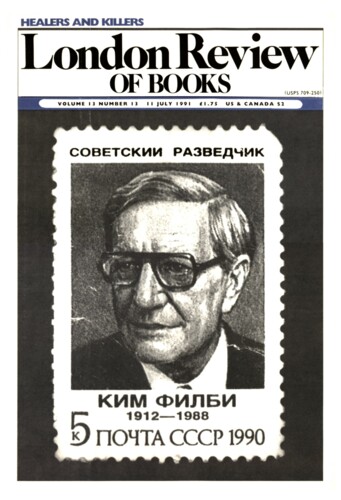Lutfi’s bar will not be opening again
Basil Davidson, 7 January 1993
North beyond Sarajevo is where the hills of Bosnia become less grey and gaunt than they are elsewhere, and a little further north again they slope away to the plain of Semberija along the Sava River. It is a pleasant enough country in normal times although a hungry one, with its peasants inhabiting scattered hamlets and family homesteads. There are also some famous old towns such as Travnik and Gradacac and Tuzla, a good deal modernised since about 1960 but otherwise unchanged in their Muslim loyalties and love of talk and strong laughter, or so it was until the ‘ethnic cleansers’ arrived a year ago. This is the region where British troops guarding UN convoys began work in November, an unenviable duty at the best of times and now we are in the worst of times; may they enjoy good luck, for there will be little else to enjoy. But if ever they have time to lift their eyes from the horror now imposed by Serb and Croat killers of Bosnian civility, they will be moved by this majestic landscape with its long slow spines lifting away on every side, Maglaj and Majevica: brda joj se plave, ‘where hills climb high into the blue’, as the peasants in my time there used to sing. And if they have a taste for reading history, as soldiers often do, they can turn when they come home again – which one has to hope will be soon – to the novels of Ivo Andric, The Bridge on the Drina and The Chronicle of Travnik, Bosnia’s Waverley and Redgauntlet, and learn about ‘how it used to be’ in this remote and peaceful province of the Stambul Sultan’s empire, while savouring the conversation of Hamdi Beg’s coevals in anciently remembered bars such as Lutfi’s kafana, now reduced from fame to bloodstained ruin.’




